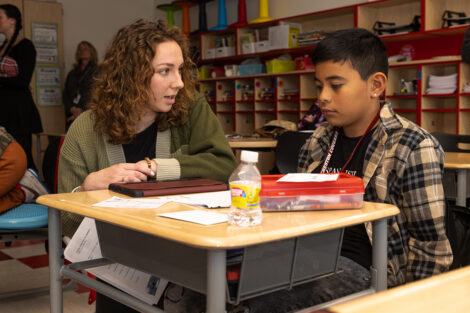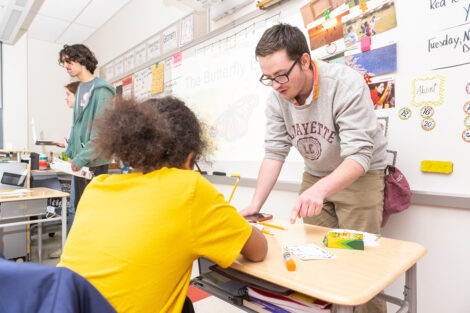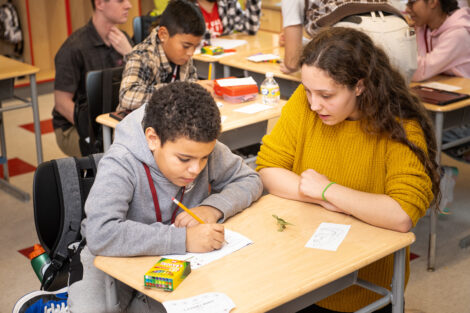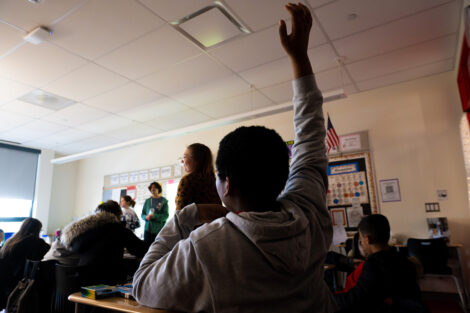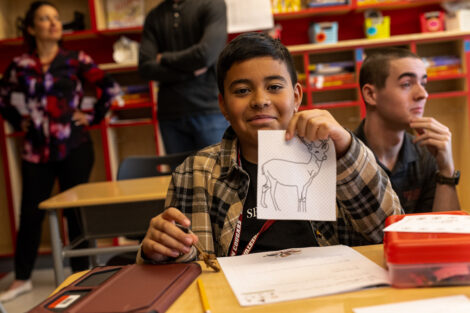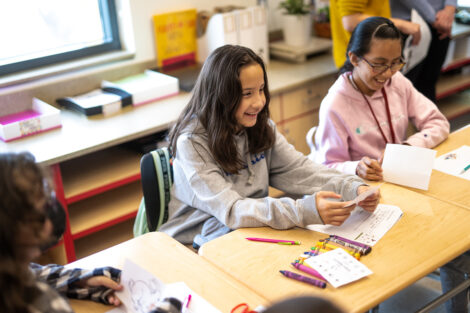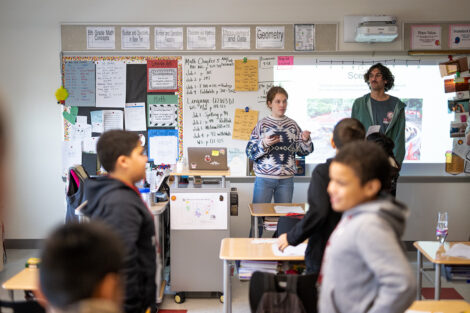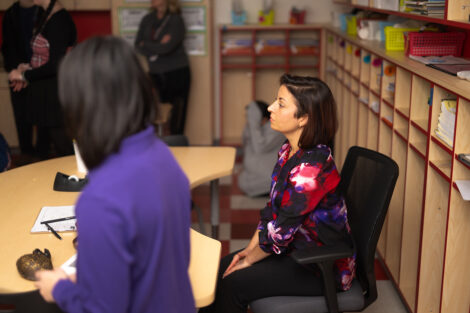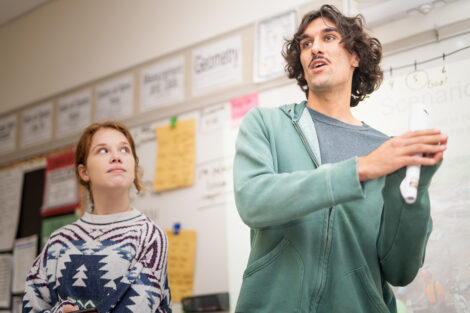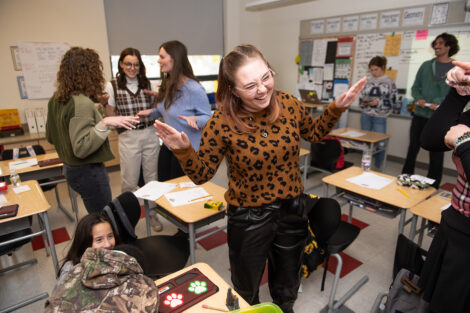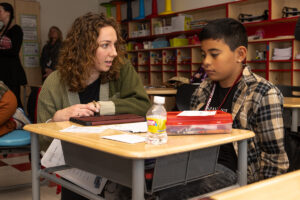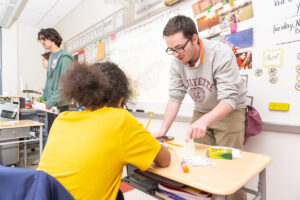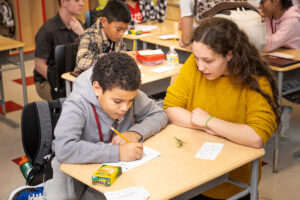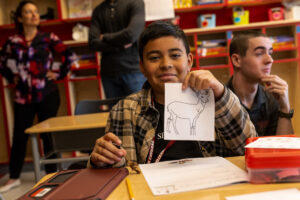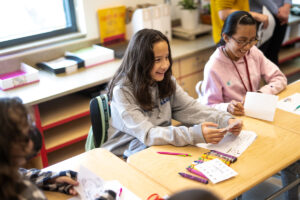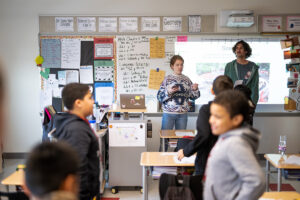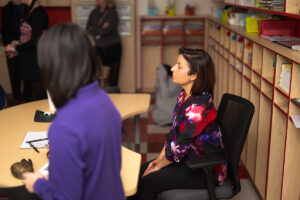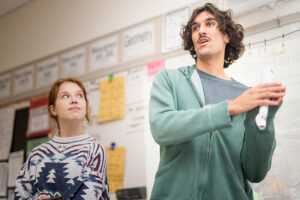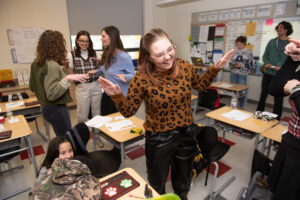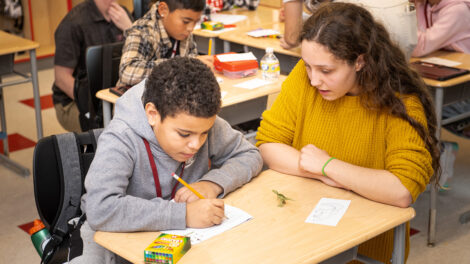Connected Classrooms: Conservation Biology
Meg Rothenberger, associate professor of biology, and her students visited a fifth grade class at Cheston Elementary as part of the Landis Center for Community Engagement’s Connected Classrooms initiative.
Concepts covered: Loss of species, what role humans have in species extinction, how extinctions affect humans, and the work of conservation biologists
Activity: The Butterfly Effect had each student in the class assigned a particular animal in the food chain. A story was then told regarding the building of a new playground and how it fragmented the area, and what happened to the organisms that lived there. It ended with how conservation helped bring the animals back.
“After a big brainstorming session of all the conservation possibilities for fifth graders, my students chose the topic of extinction because they figured that the familiar story of dinosaur extinctions would be a great segue into more recent extinctions. They talked about how humans are responsible for 99% of modern extinctions, how our well-being is connected to the web of life, and how we can support conservation,” shares Rothenberger.
“Teaching in an elementary school classroom was very fulfilling. It seems that there are not as many science classes taught in elementary schools as there are reading and math classes, so being able to introduce a totally new topic/perspective on what there is to learn out there was really awesome,” shares Olivia Bamford ’24. “Another aspect that I really enjoyed was that these students viewed us as the ‘big kid’ versions of themselves, so they were really engaged and interested in what we had to share. I think this aspect of the Connected Classroom is what’s most important—making a genuine connection and impression on the students, so that they get a look into what they may want to pursue in the future.”
“I had a lot of fun developing our ‘extension activity,’ which involved teaching the kids how to use the IUCN Red List to look up threatened and endangered species. They made a ‘missing’ poster for their animal of choice and listed what is causing them to be endangered,” shares Benjamin Cluver ’24. “It was fun teaching in an elementary classroom because the kids get excited over the smallest thing and have so much enthusiasm for learning. I was especially inspired when one of the students I was working with said she felt hopeful for the future of endangered species because of the work that conservation biologists are doing.”
